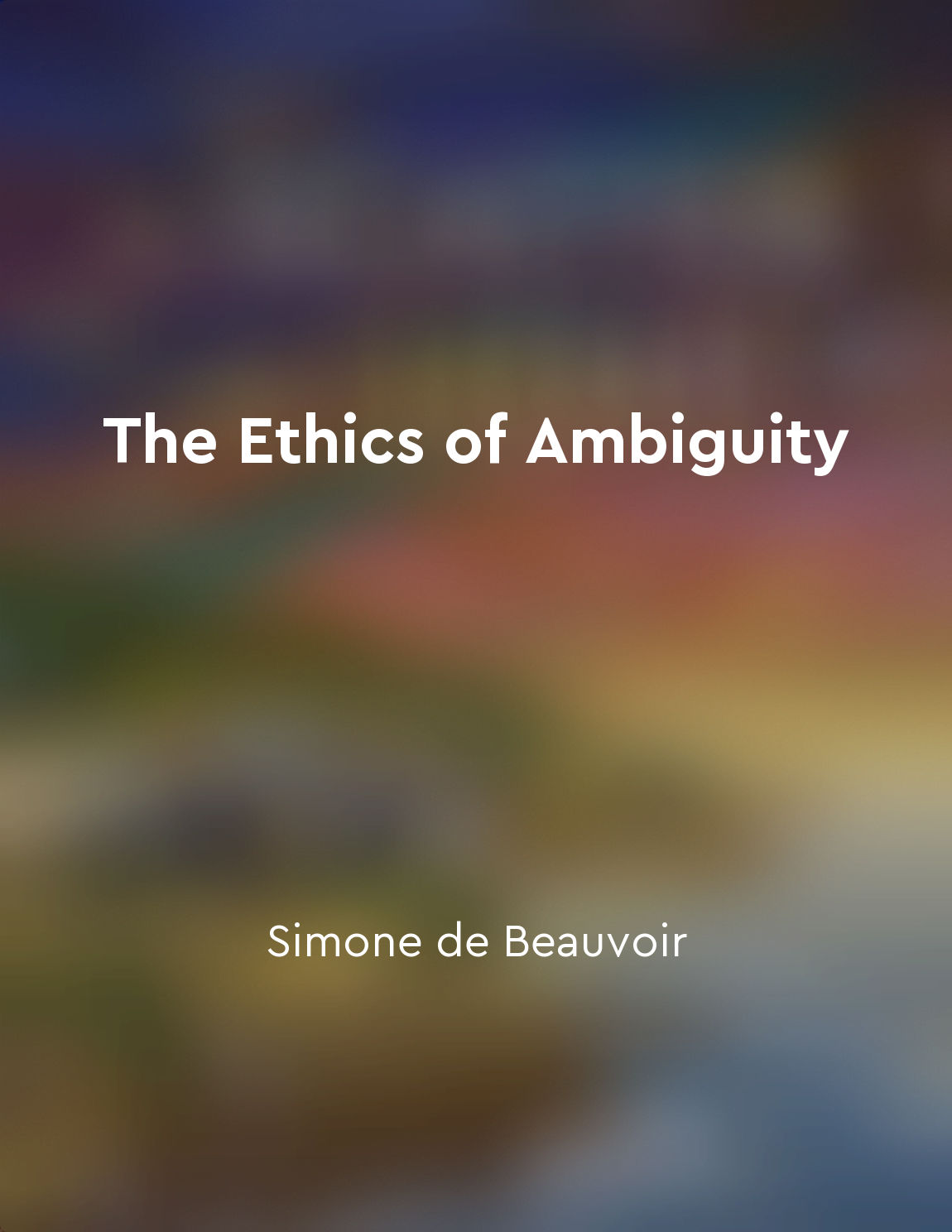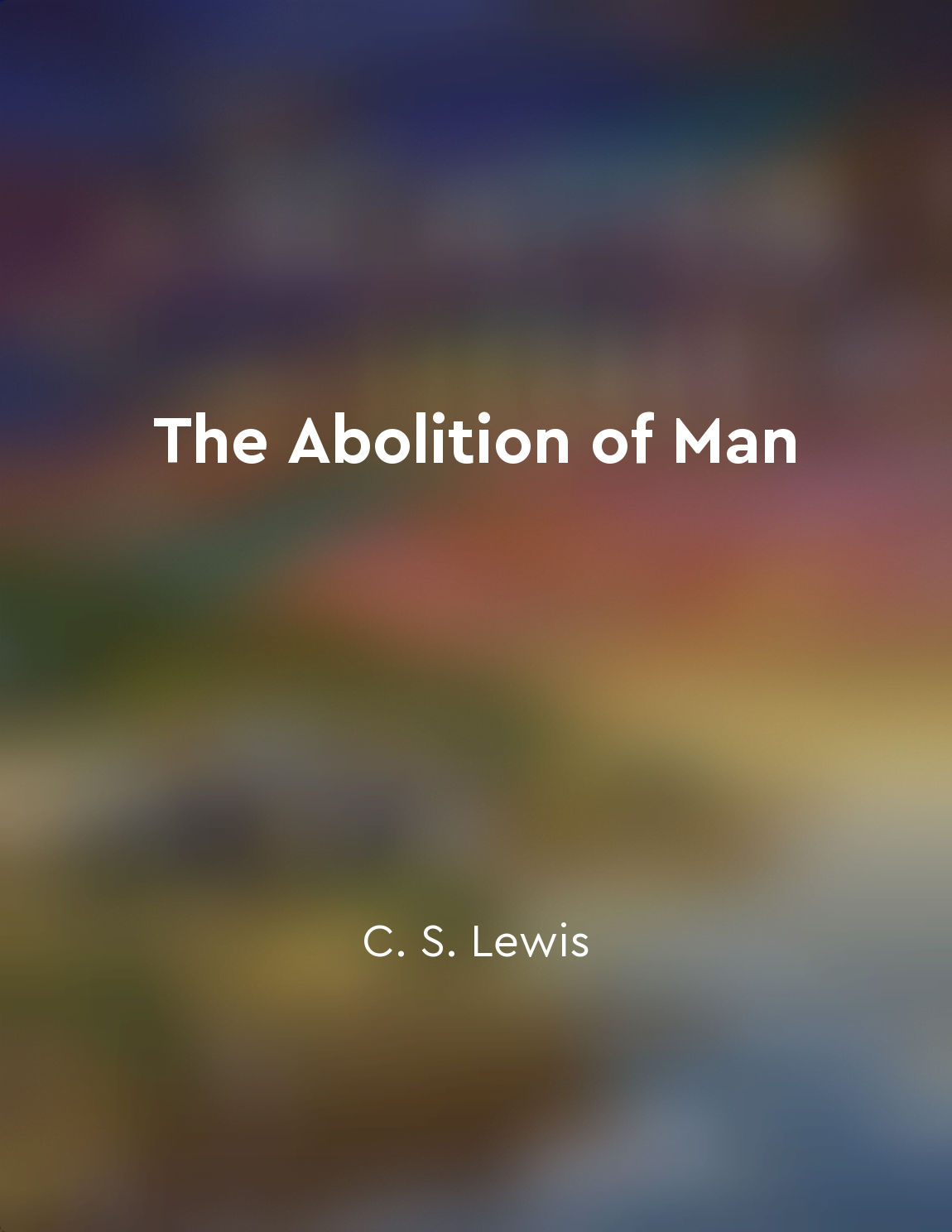Duty to obey moral laws is driven by rational autonomy, not external influences from "summary" of Groundwork for the Metaphysics of Morals by Immanuel Kant
In the realm of morality, the concept of duty holds a central place. It is essential to understand that this duty is not contingent on external factors or influences, but rather on rational autonomy. In other words, the obligation to obey moral laws stems from one's ability to reason and make decisions based on principles that are universally valid. Rational autonomy, according to Kant, is the capacity to govern oneself according to moral principles that are derived from reason alone. It is the ability to act in accordance with duty, regardless of one's desires, emotions, or external pressures. This autonomy is what distinguishes human beings from other creatures and gives them the ability to act morally. Kant argues that moral laws are not imposed on us by external forces or authorities, but are instead a product of our own rational deliberation. We have a duty to obey these laws because they are based on principles that we can rationally endorse as universal. In other words, we are obligated to act in a certain way not because someone else tells us to, but because it is in accordance with our own rational nature. This concept of duty as stemming from rational autonomy has important implications for how we understand morality. It means that moral obligations are not contingent on social norms, cultural practices, or personal preferences. Instead, they are grounded in reason and apply universally to all rational beings.- The idea that the duty to obey moral laws is driven by rational autonomy, not external influences, is a fundamental aspect of Kant's moral philosophy. It highlights the importance of reason in guiding our actions and emphasizes the universal validity of moral principles. By recognizing the autonomy of individuals in determining their moral obligations, Kant provides a compelling account of the nature of duty in the moral realm.
Similar Posts
Resentment undermines moral integrity
Resentment, as a powerful and pervasive emotion, has the ability to corrode and erode moral integrity. It is a feeling of bitte...
Reason is not always reliable
Reason, though undoubtedly a valuable faculty that distinguishes humans from animals, is not always a reliable guide in our dec...

The search for certainty can lead to ethical stagnation
When we embark on a quest for absolute certainty in our ethical beliefs, we unwittingly close ourselves off to the complexities...

Theism and atheism are both based on beliefs that cannot be proven
The belief in a god or gods, commonly referred to as theism, is a concept that has been ingrained in human society for centurie...

The pursuit of wealth should not overshadow moral considerations
In the pursuit of wealth, individuals are often faced with various moral dilemmas that challenge their ethical considerations. ...

The importance of objective values in shaping society
In the modern world, there is a disturbing trend towards subjectivism, where individuals are encouraged to believe that values ...
Freedom is a process of becoming
Freedom can be seen as a dynamic and evolving state, rather than a static condition. It is not simply a fixed state of being, b...

Mindfulness leads to enlightenment
In the realm of human experience, nothing is as profound as the practice of mindfulness. When one is fully present in the momen...
Paralogisms reveal errors in applying categories to the self
The Paralogisms, as I have expounded upon, serve to uncover the fallacies that arise when one attempts to apply categories to t...

Hindsight bias distorts memory of past events
Hindsight bias, a common cognitive illusion, warps our recollection of past events. When we look back on a situation, we tend t...

